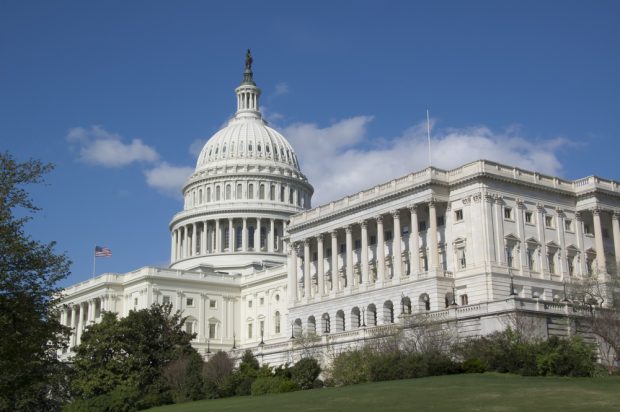 The U.S. Capitol Building.
The U.S. Capitol Building.
NAFCU is pushing Congress to enact a two-year delay for the NCUA's Risk-Based Capital Rule, contending that the one-year delay adopted by the agency board last week is not long enough to address its concerns.
The NCUA board last week approved a final rule that delays the implementation of the Risk-Based Capital Rule from Jan. 1, 2019 to Jan. 1, 2020. The rule also increases the asset level for credit unions to be required to follow the rule from $100 million to $500 million.
Recommended For You
NAFCU and CUNA supported the one-year delay as a good first step.
In a letter to the committees with jurisdiction over credit unions, Brad Thaler, NAFCU's vice president of legislative affairs said that the one-year delay provides some immediate, short term relief for credit unions.
However, NAFCU is concerned that the rule defines complex credit unions by asset size, not by risk-weight categories the banking industry uses. In addition, NAFCU wants Congress to ensure that credit unions have the same options as community banks.
Thaler said that NAFCU officials believe that a two-year delay is still desirable to allow the agency to re-examine specific issues with the rule and its possible negative impact on credit unions.
The House has passed a two-year delay in several pieces of legislation, including a bill to update legislation dealing with foreign investment in the U.S. and its version of the Financial Services appropriations bill.
The foreign investment legislation was wrapped into the annual defense authorization bill and the RBC provision was dropped. The Financial Services appropriations bill has not been enacted yet, but Senate appropriators have said they do not want to include any legislative riders on the funding bills.
That appears to leave H.R. 5288, House legislation that would make it easier for businesses to raise capital. The bill was cosponsored by House Financial Services Chairman Jeb Hensarling (R-Texas) and the panel's ranking Democrat, Maxine Waters of California. The bill encompasses several bipartisan bills the committee had approved, as well as the RBC delay.
Senate Majority Leader Mitch McConnell (R-Ky.) has promised that the Senate will consider the legislation. However, Congress will only be in session for a short period of time after the November mid-term elections.
If the bill is not enacted by the end of the year, the legislation would expire and would have to be re-introduced next year.
© Touchpoint Markets, All Rights Reserved. Request academic re-use from www.copyright.com. All other uses, submit a request to [email protected]. For more inforrmation visit Asset & Logo Licensing.






